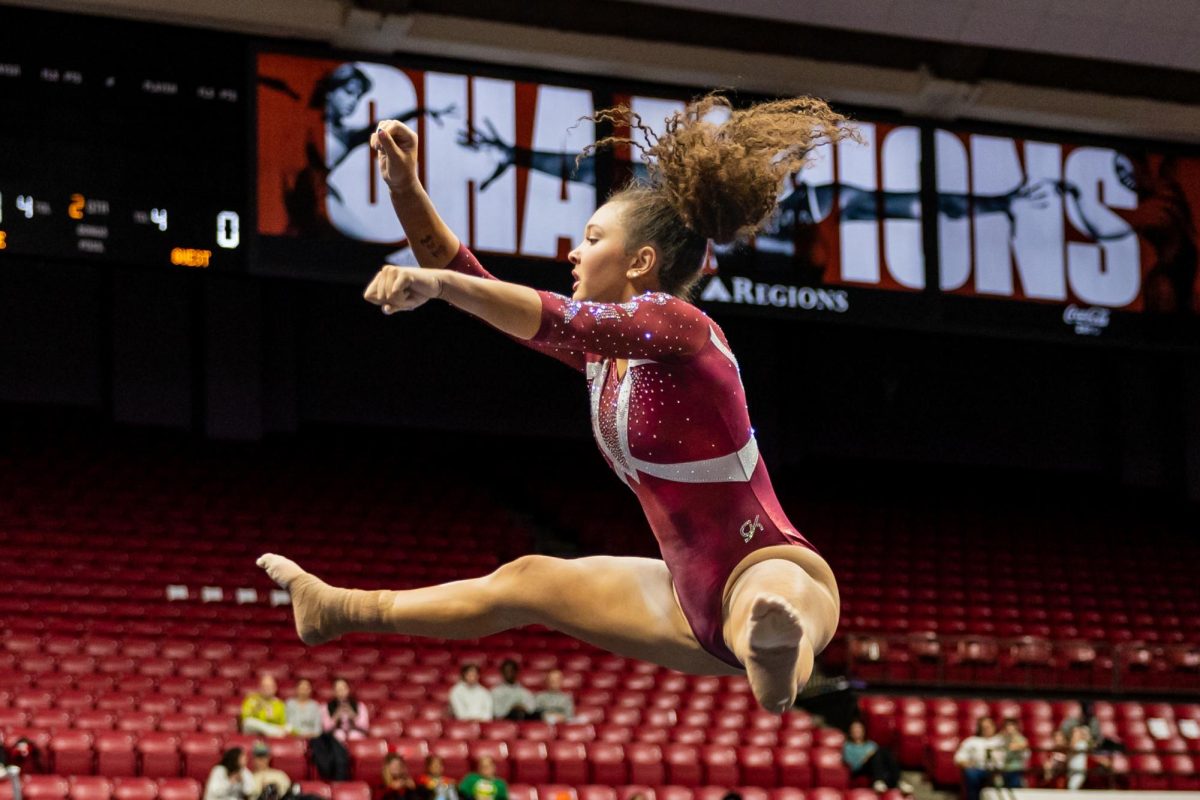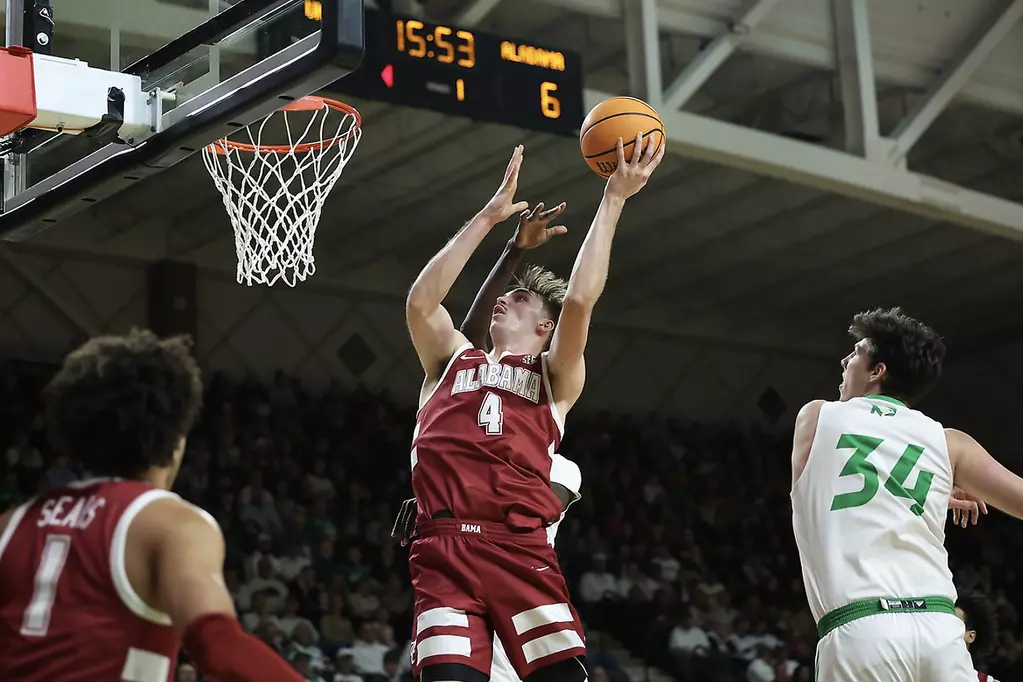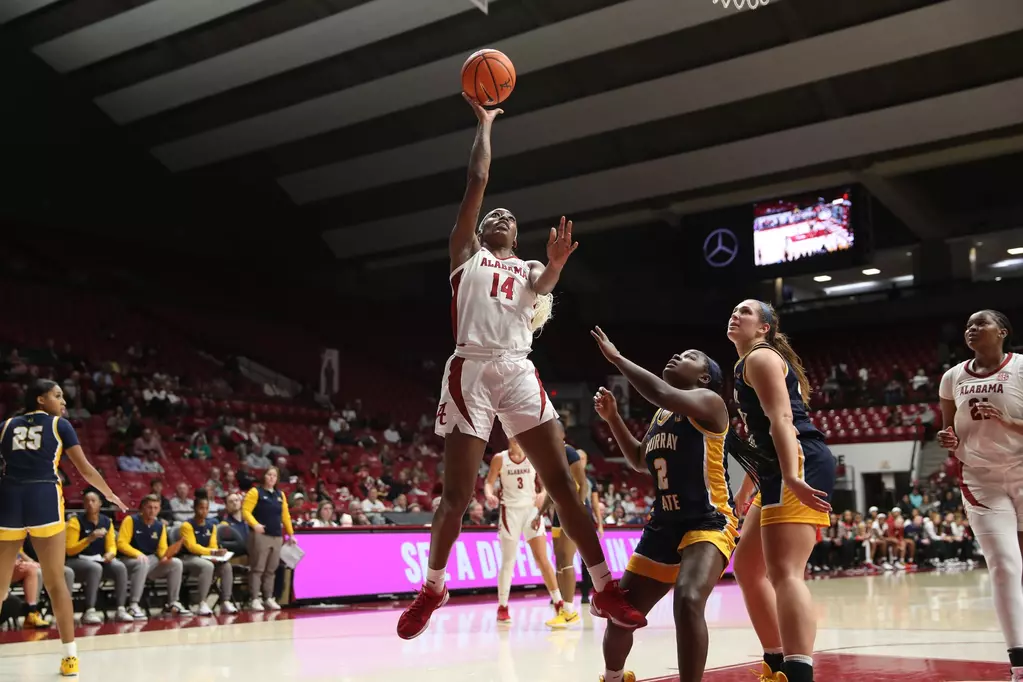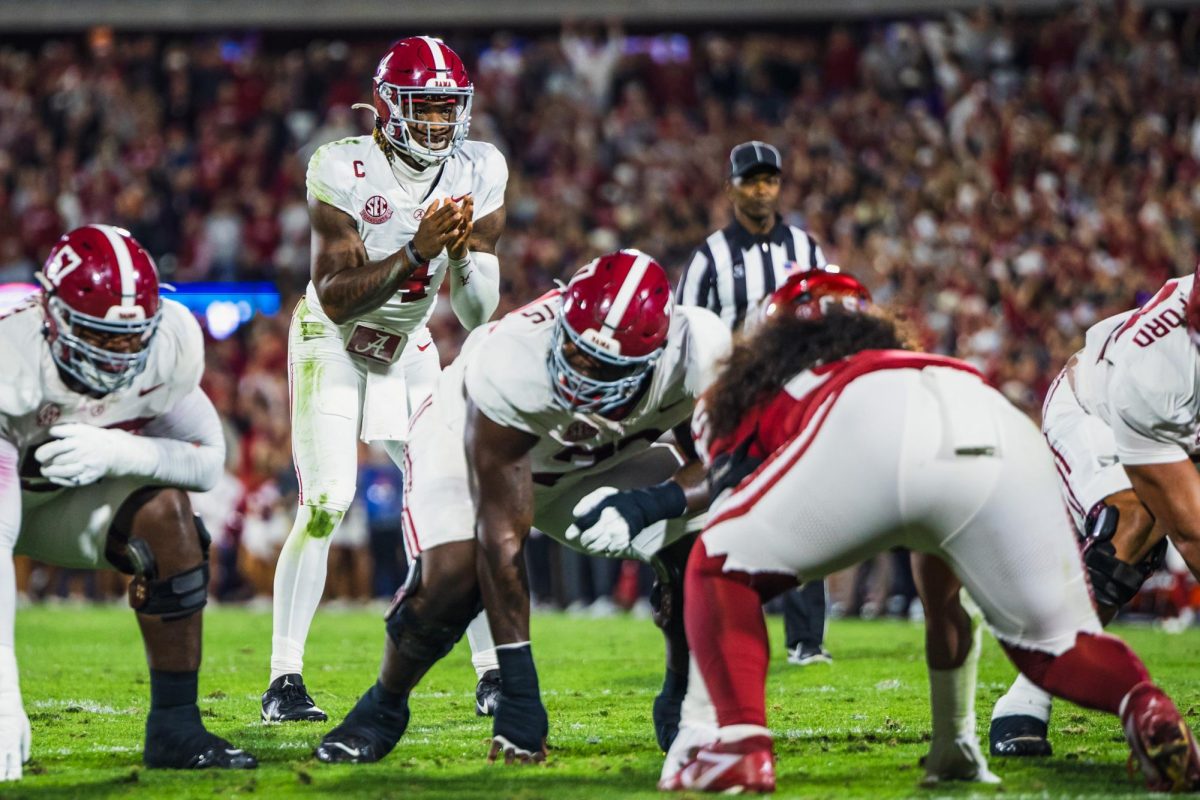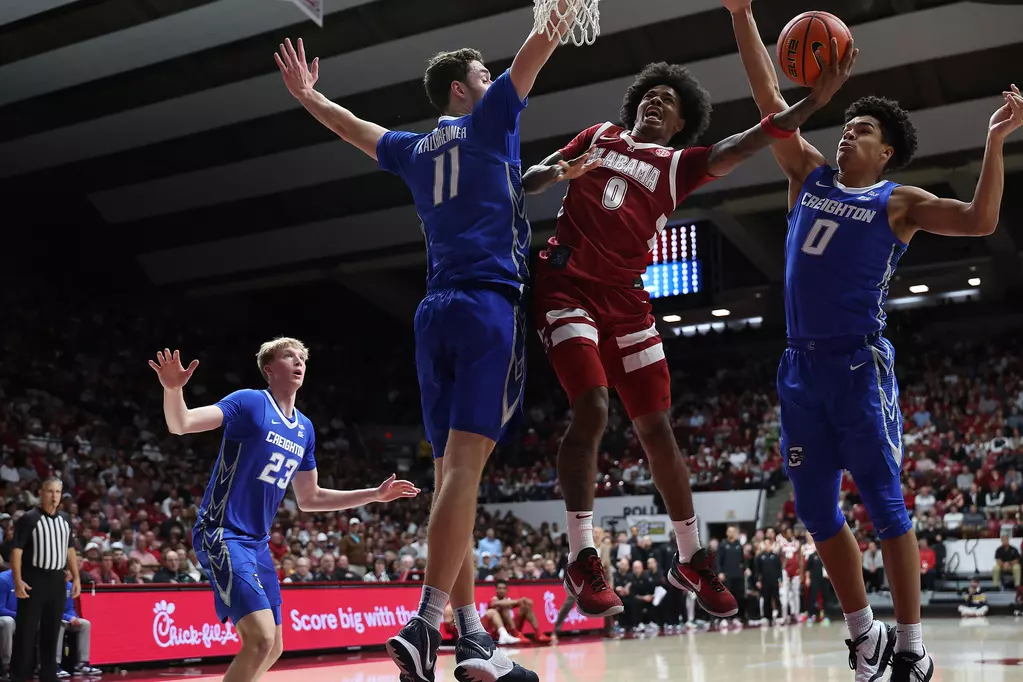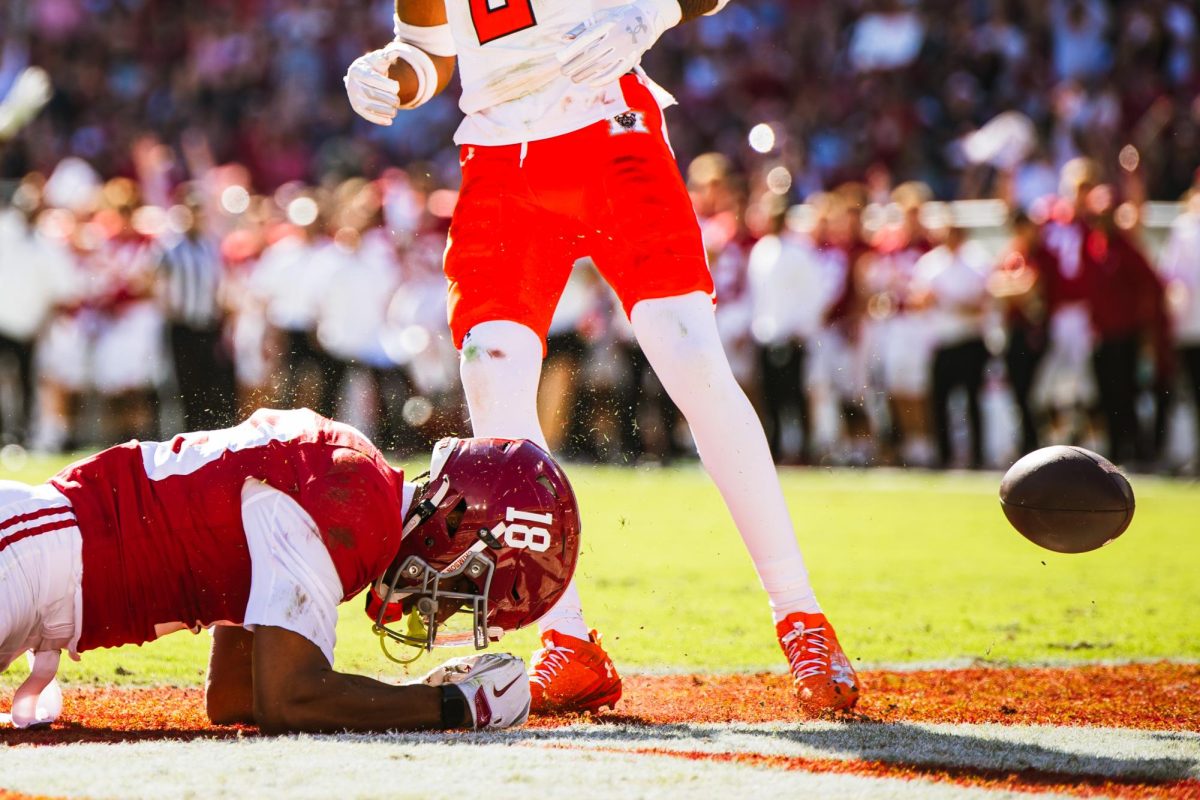You can’t tell by looking at her, and she probably won’t tell you, but Ashley Combs is living with cystic fibrosis. She lives her life just as any other college student would, and she doesn’t let her illness stop her from achieving her dreams.
“It’s definitely shaped who I am. It’s given me a lot of wisdom beyond my years, and it’s put my family and I through challenges that most people don’t face, so that’s made me extremely goal-oriented and relatively focused,” Combs said. “I have a lot that I’ve realized that I want to accomplish because of what I’ve dealt with.”
The Colorado native, a sophomore majoring in psychology, is a member of the water ski team, SkiBama. At the team’s most recent competition, Collegiate Nationals, Combs was SkiBama’s top jumper.
Cystic fibrosis is a terminal illness all infants are tested for at birth. It affects the lungs and digestive system and creates thick mucus that clogs the lungs and pancreas. Combs’ mother Shannon Pelletier said Ashley was not actually diagnosed with cystic fibrosis until she was 2 years old. At that point, the doctors told the Combs their daughter wouldn’t make it past the age of 5, and if she did, she would be on a feeding tube and require oxygen. Combs is now 19 and living a normal life.
“I think what’s most important about Ashley is not that she has CF, but that she lives every day to overcome how she feels with CF,” Shannon said. “She just gets up every day, and she hikes through not feeling good, and she puts on a brave face.”
Water skiing has been in Combs’ family for four generations. Her dad, grandfather and great-grandfather all water skied and passed the sport on to her when she was 3 years old.
Water skiing is Combs’ passion, she said. It’s something that helps her get through her day and gives her something to look forward to.
“[She] loves every minute of what she does, and you know it’s very important to her, and it’s a lot about who she is,” Pelletier said.
“It makes me feel like I’ve actually gotten to experience a lot, and it’s due to human interaction, and it’s due to that fact that I get to travel. And you know, it’s a release of endorphins so it just makes me happy in general, and it’s just given me something to look forward to the next day or a month from now,” Combs said.
SkiBama is a very tight-knit group, and Combs said she would do just about anything for her teammates, and her teammates feel the same about her. Combs said she was immediately able to bond with the group.
“She’s an asset to the team,” SkiBama faculty advisor Gregory Goldstein said. “She’s very positive and brings a lot of positive energy to the team.”
Despite Combs’ disease, her family wasn’t worried about her competing in a sport like water skiing. They support her through all of her challenges and successes.
“We focus as a family on quality versus quantity. I think the water skiing component has always kept her fighting because she loves it so much,” Pelletier said. “Water skiing gives her an ability and an outlet to be successful and competitive in a sport without feeling that she can’t.”
Combs chose The University of Alabama not only to experience life in the South and to join a nationally ranked water ski team, but also because Birmingham is home to the largest cystic fibrosis clinic in the nation.
“That gave way for a lot of opportunity with that part of my life,” Combs said. “When I found that out, it all just kind of fell into place.”
Besides their daily at-home routines, cystic fibrosis patients make frequent visits to the hospital to receive important treatments they cannot get at home. Some people may find it hard to find a balance between attending a major university, competing in a sport and attending regular doctor appointments, but Combs has found the perfect balance. She said because she has done this her whole life, it’s much easier for her.
“It is just a lifestyle. If I had to wake up one day and just do it, I can’t. It’s all I know,” Combs said. “Professors are relatively understanding about it. I am definitely no straight-A student, but I get by. In the long run, it doesn’t affect my school work as much as it could.”
With a degree in psychology, Combs hopes to work with children that are living with chronic illnesses. Because water skiing has helped her cope with cystic fibrosis, Combs hopes to create a program that will allow other children to experience the same opportunities she was able to experience.
“I want to be able to integrate activity into children’s lives because I think that is one of the huge reasons that I am doing as well,” Combs said. “It’s not just the CF. It’s the water skiing, because that was something that always drove me to be better, and it was so much fun as well. I was exposed to amazing people, and I want to be able to give kids the opportunity to try that stuff out as well, because I think even if you’re practically immobile, there are ways, there are things that you can do to make you feel the way water skiing made me feel.”
Combs said she also believes that by creating a program that will allow children to do things they didn’t think were possible she can create role models for younger patients to look up to.
“I feel like if I had an example of someone who was in my position, who had to fight for their ability to live and then was relatively successful at it, that would motivate me so much to just work harder, and I want to do that, and hopefully one day I will be successful enough to do that,” Combs said.
Combs said she is grateful for her experiences and opportunities thus far, and instead of feeling sorry for herself for having a terminal illness, she is grateful for it.
“I think that the cystic fibrosis in itself gave me the opportunity just to appreciate and remove myself from the situation momentarily to see what I have and just love it,” she said.



